#the-revolution-will-be-feminized
Text



Schoolgirls in Iran in protest against the regime sticking their middle fingers to Khomeini and Khamenei
#iran#free iran#iran protests#protests#mahsa amini#feminism#iran revolution#opiran#iconic#the hair tho#🥺#iranian#iranian women#women’s rights#iranian lives matter#woman life freedom#zan zendegi azadi#jina mahsa amini
44K notes
·
View notes
Text

March 8th: International Women's Day
The Palestinian woman: the guardian of the dream and the shield of the revolution
(Popular Front for the Liberation of Palestine, 2024)
#pflp#popular front for the liberation of palestine#march 8th#international working women's day#international women's day#free palestine#palestine#feminism#women#guerrilla#communism#revolution#poster#propaganda#posters#2024
1K notes
·
View notes
Text
If women all around the United States turned off their television sets for an extended period of time and purchased no products other than the very basic necessities to protest exploitation of women ... these actions would have significant political and economic consequences. Since women are not thoroughly organised and are daily manipulated by ruling male groups who profit from sexism and female consumerism, we have never exercised this power. Most women do not understand the forms of power they could exercise. They need political education for critical consciousness.
bell hooks, Feminist Theory: From Margin to Center (2000), p.94
1K notes
·
View notes
Text
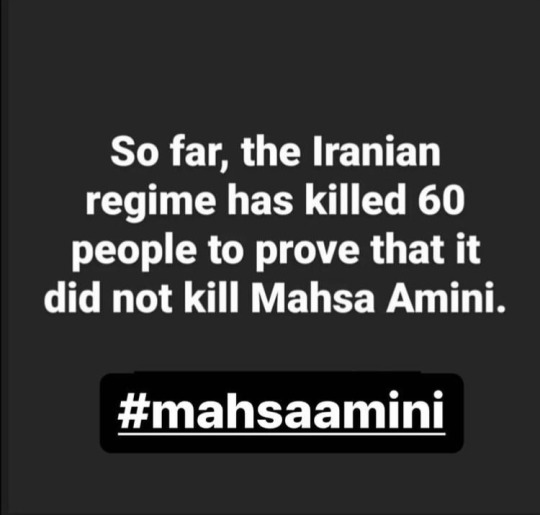
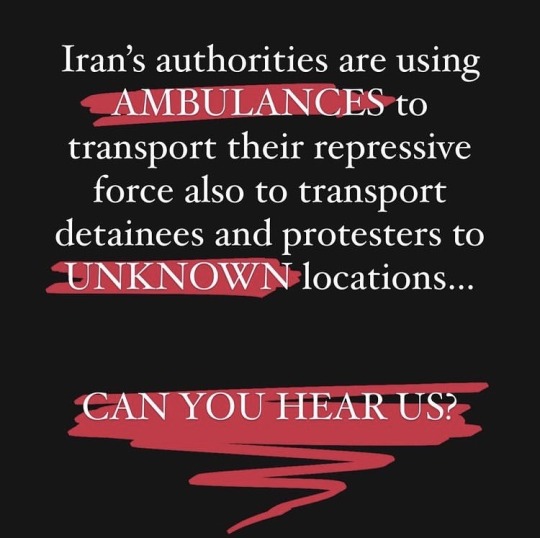
CAN YOU HEAR US??
#mahsa amini#women movement of iran#religious oppression#iran#this is a revolution#feminism#feminist
9K notes
·
View notes
Text
saying F U to the regime again and again: a quick update on women vs IR regime
Famous Iranian actresses have been appearing in public without a mandatory hijab. This has been happening since the beginning of the protests. Last month, Kiumars Pourahmad, a well known Iranian screenwriter and director, committed suicide. He had a history of criticizing the regime's political decisions. At his funeral, some of the famous actresses attended without mandatory hijab.
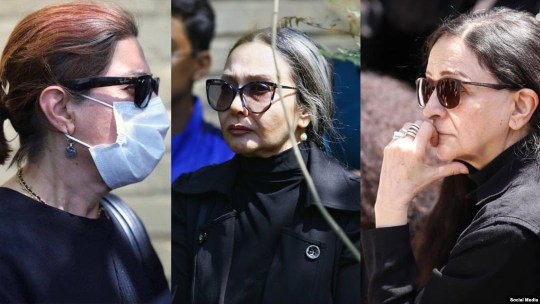
You can see Fateme Motamedarya, Katayoun Riyahi, and Golab Adineh in these pictures from the funeral. Ms. Riyahi was one of the first celebrities who took her hijab off at the start of the Jina (Mahsa) Amini protest and for that she's been the target of IRGC harassment and has been to court.
Last week, in the ceremony of screening of the final episode of Lion's Skin (a persian crime show), actress Pantea Bahram participated without hijab. The manager of Tehran’s Lotus Cinema, where the ceremony was held, was fired for letting her attend without hijab.
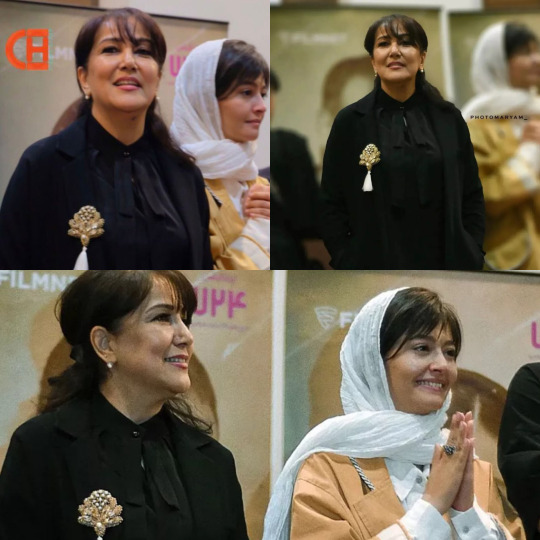
Other than prosecution, the regime has blocked these celebrities' bank accounts. Basij and IRGC members have also attacked and harassed these women online and in real life.
Students on university campuses take off their hijabs. There's an installed version of morality police in universities that monitor students' styles. Female students must wear "appropriate" hijab and male students must wear "manly" clothes (one of my guy friends once was asked to go back home and change his shoes because they were red casual loafers. Apparently that's gay!). When you enroll in Iranian universities, the first thing you do is to go to the security office and sign an agreement that says you promise to follow the Islamic dress code. There are posters all over the campus that says things like "hijab is security" "respect the islamic hijab" and "not wearing appropriate hijab (tight short clothes, too much hair, makeup, etc) would result in legal action". So not wearing hijab on campus, where a lot of security cameras are installed and it's easy to identify you, is a big deal.
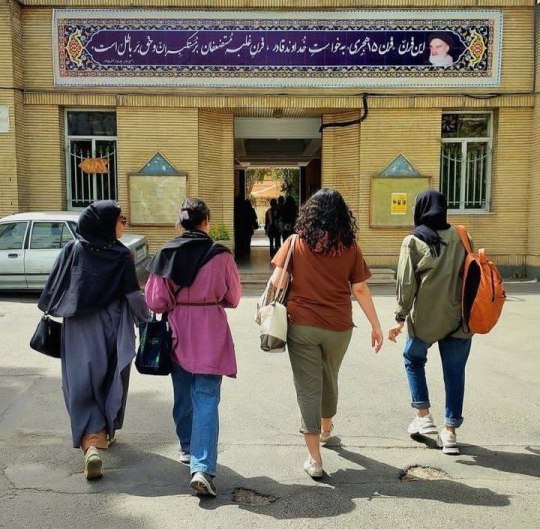
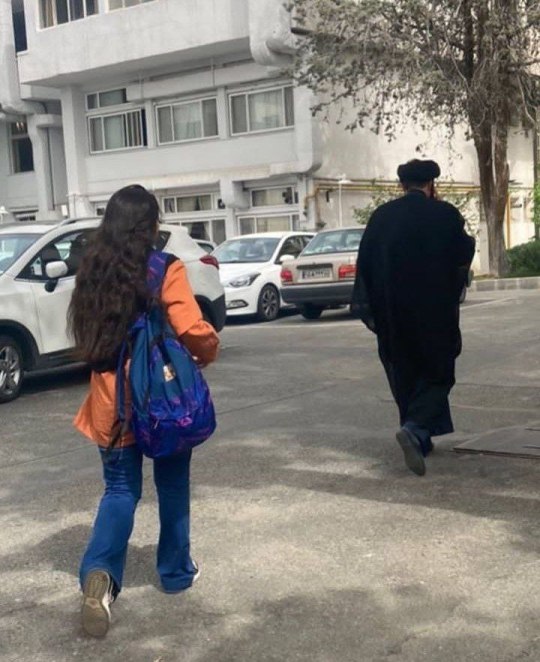
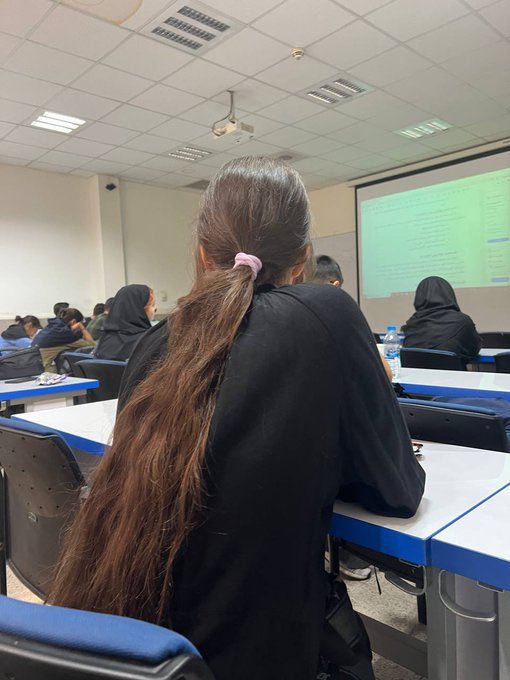
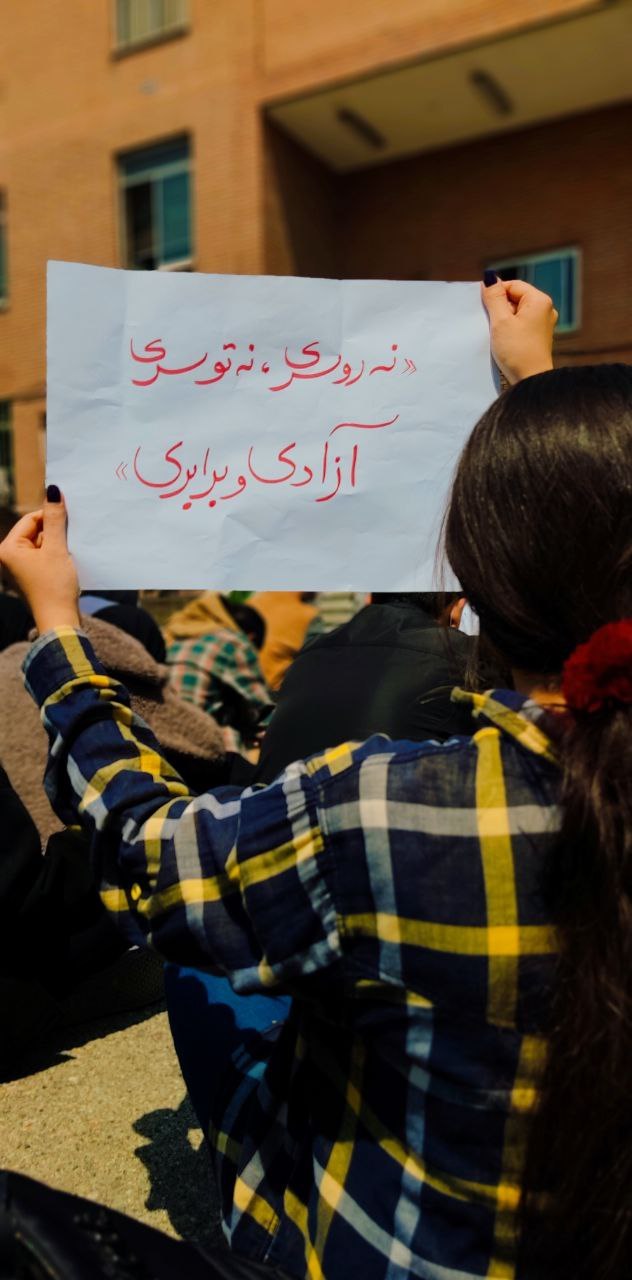
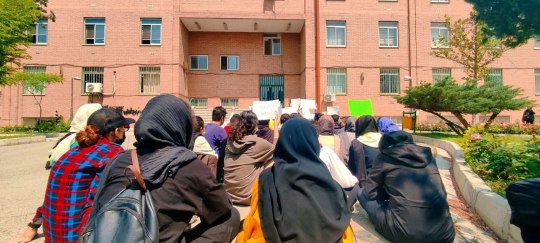

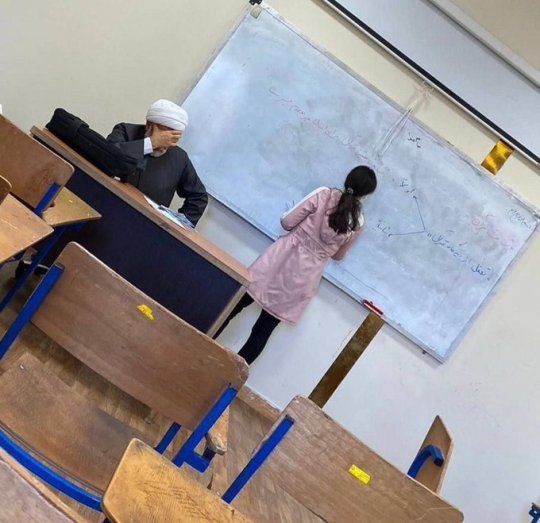
The regime's response to students taking off their hijabs is sending threatening messages to students' phones and increasing the security people. At the entrance of Universities, these security forces check people's clothes and if it's not proper they won't let you in. Some of the students wear the hijab at the entrance and take it off after they're in. They have warned our professors to not let non hijabi students sit in classes too.
One of my favorite trends in Iran now is when guys wear our hijab. These pictures are from universities. Guys wearing hijab make the security mad. This is a great act of solidarity with women against the obligatory hijab.
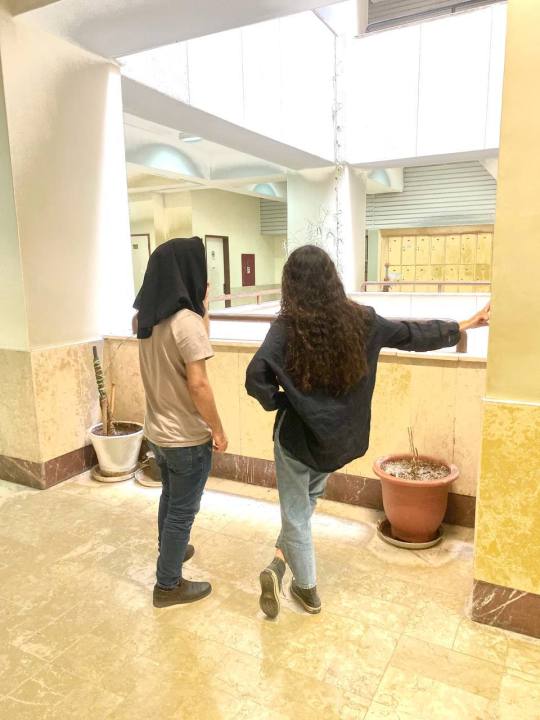
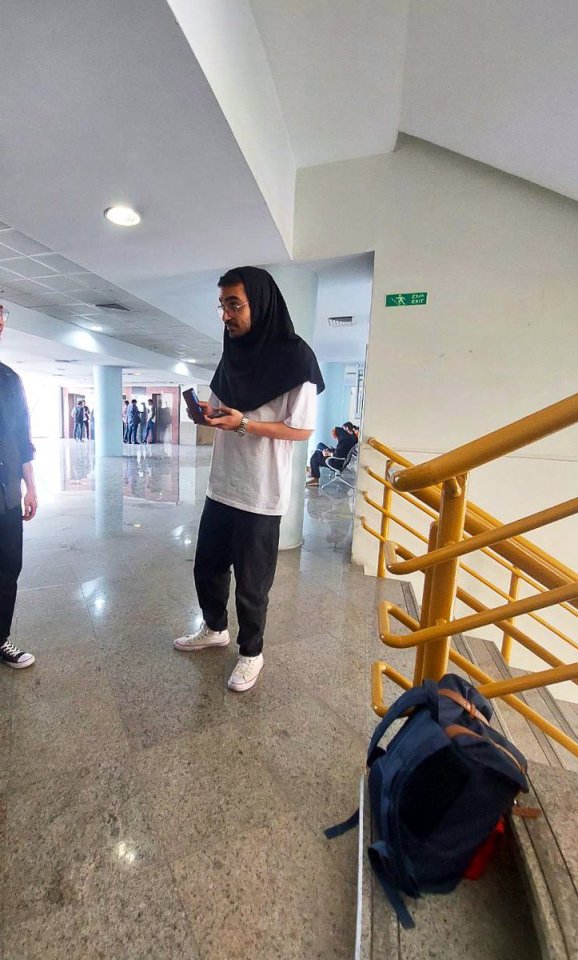
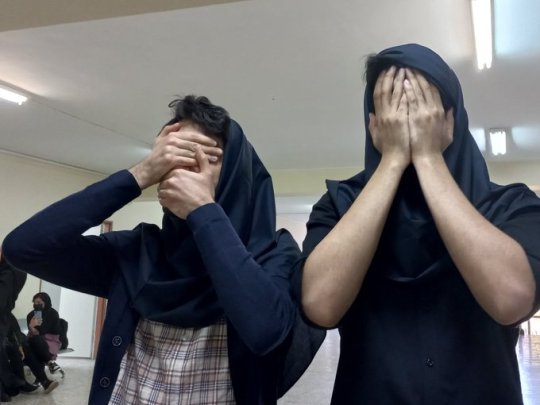
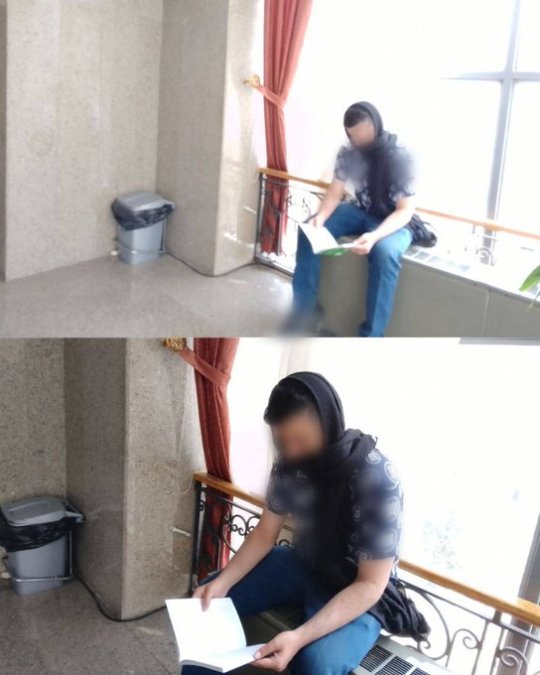
Some men have been doing either this or wearing shorts in public. The former is to ridicule the obligatory dress code and the latter is because wearing shorts in public is forbidden for guys too.
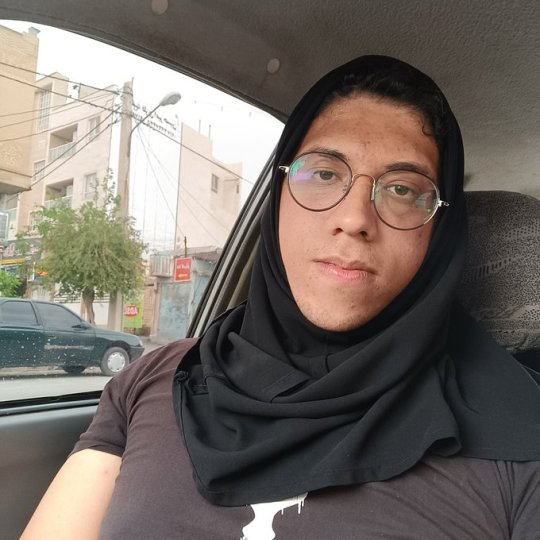
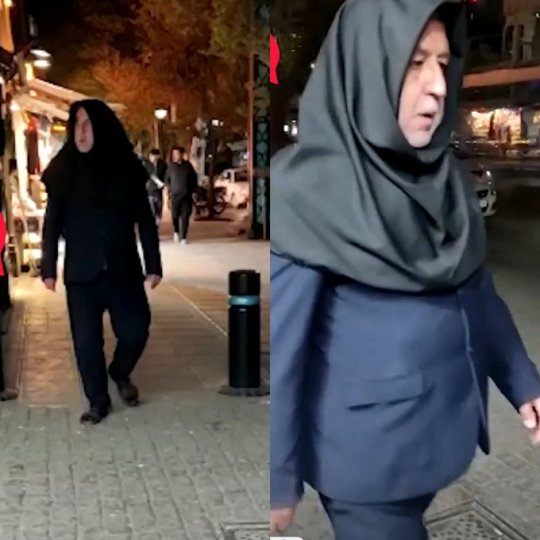
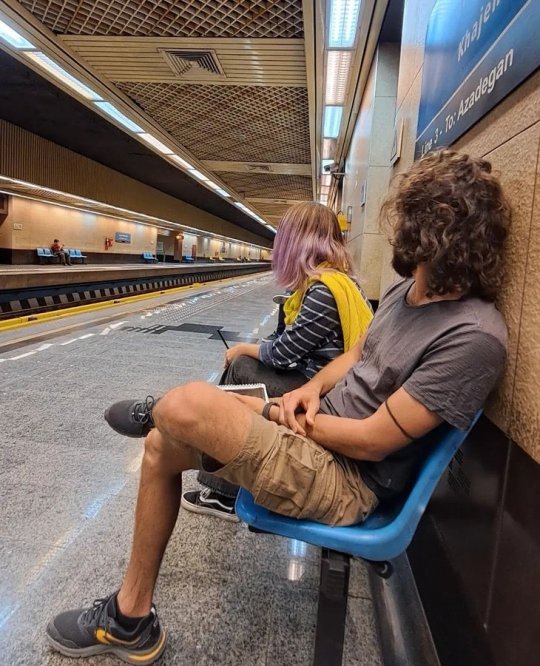

And women not wearing hijab in general. Though hijab is not our only issue, we want a whole new political system, one that is not theocratic or terroristic, hijab is something the regime won't back down from because it's one of their strongest oppressing tools. If they let us win the fight against obligatory hijab, I quote from a regime head, "people keep demanding more changes"!
So to put people against people to enforce the hijab law again, the regime has closed down many businesses (hotels, cafes, malls, bookstores, etc) for welcoming non hijabi female costumers. They have also warned taxi and bus drivers to not let non hijabi women in their vehicles.

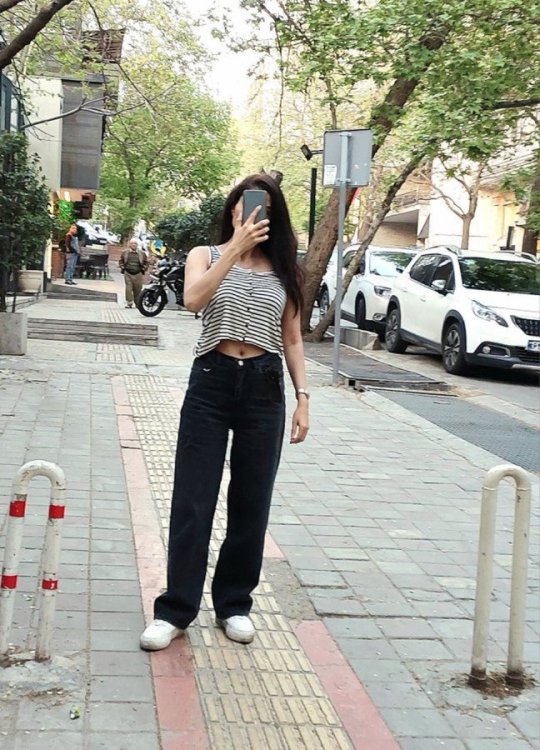
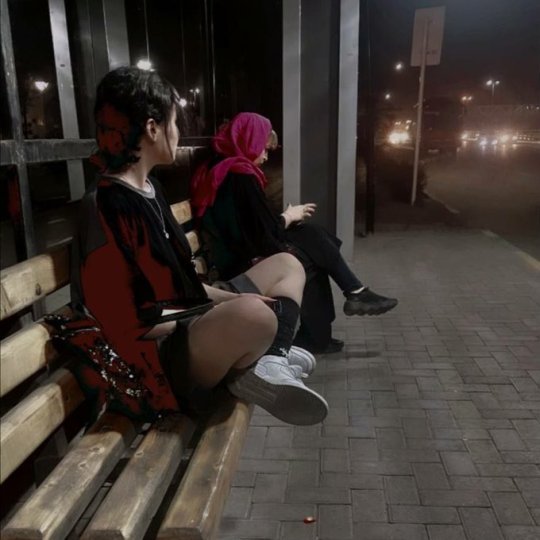
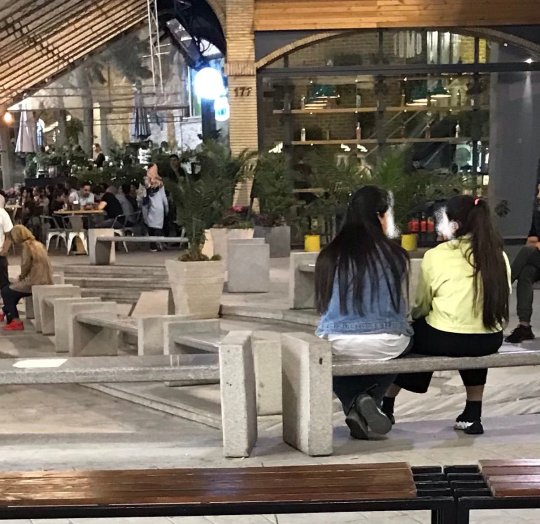
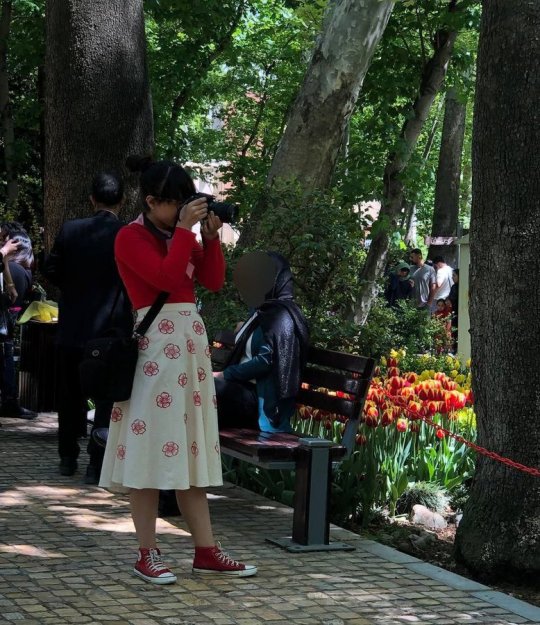
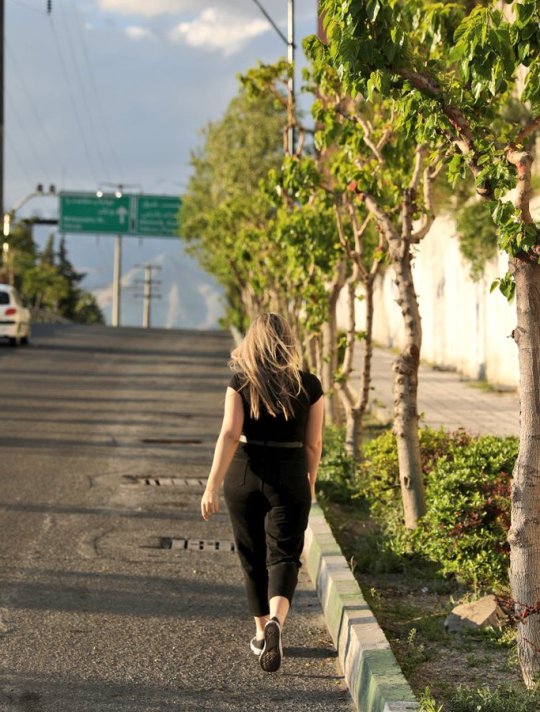
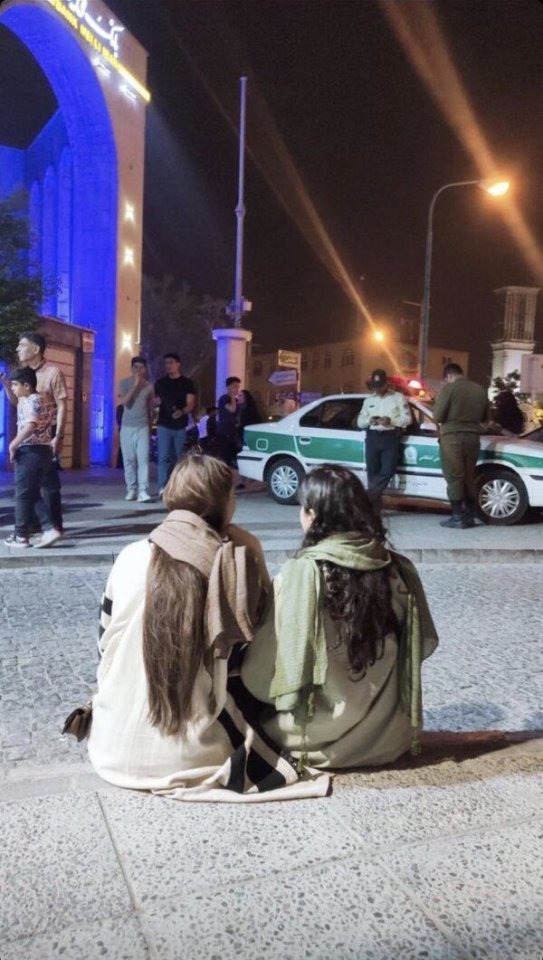


Although not everyone is disobeying the hijab law (some believe in hijab, some don't want to pay the price), the number of women who take the risk and don't wear hijab in Tehran and many other cities is high enough that you feel encouraged to keep doing it.
#iran#iran protests#iran revolution#mahsa amini#jina amini#jin jiyan azadi#women life freedom#politics#human rights#feminism#middle east#women revolution#obligatory hijab#university student#civil disobedience
2K notes
·
View notes
Text
the look all the blue haired communist give you when they try their “i’m a non-abled intersex trans woman suffering from a plethora of diseases” excuse to get out of labour :

Why are these people, those who do no or refuse hard or meaningful labour, the face of these economic revolutionary parties?
#socialism#communism#feminism#feminist#feminist literature#radical feminism#radical feminist theory#terfblr#trans exclusionary radical feminist#radical feminists please touch#radical feminist community#radical feminists do interact#socialist revolution#socialist politics
311 notes
·
View notes
Text
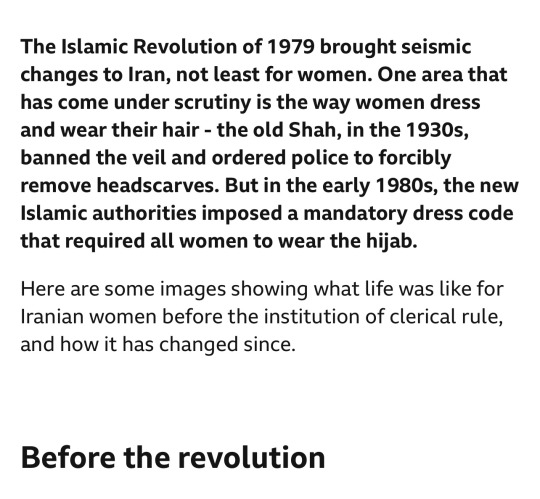
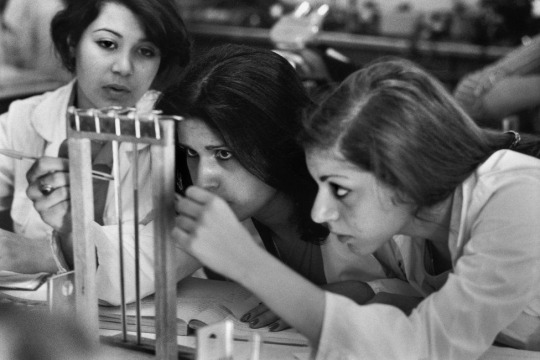
Studying at Tehran University in 1977: While many women were already in higher education at the time of the revolution, the subsequent years saw a marked increase in the number attending university. This was in part because the authorities managed to convince conservative families living in rural areas to allow their daughters to study away from home.
"They tried to stop women from attending university, but there was such a backlash they had to allow them to return," says Baroness Haleh Afshar, a professor of women's studies at the University of York who grew up in Iran in the 1960s.
"Some educated people left Iran, and the authorities realised in order to run the country they needed to educate both men and women."
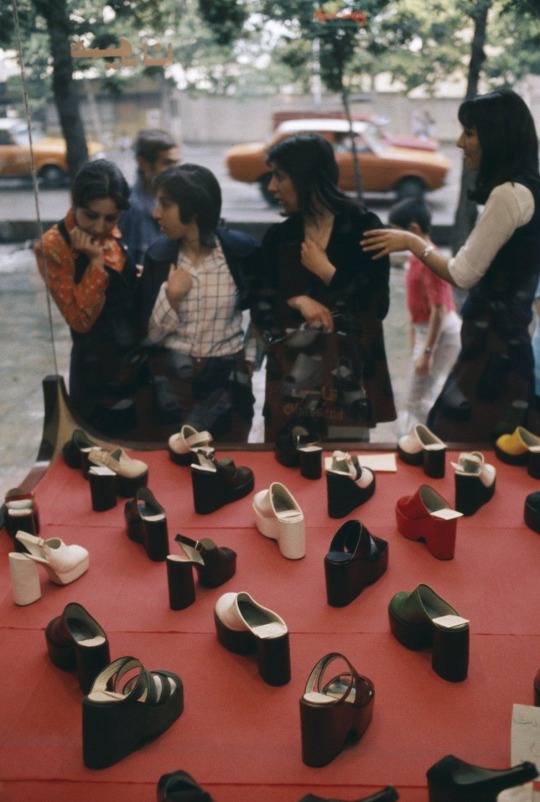
Window shopping in Tehran in 1976: Before the revolution, the hijab was already widely worn but many women also chose to don Western-style clothes, including tight-fitting jeans, miniskirts and short-sleeved tops. "The shoes haven't changed - and the passion for shoes is in all of us! Women in Iran are no different from women the world over, and going shopping is just a means for women to get away from every day stress," says Prof Afshar.
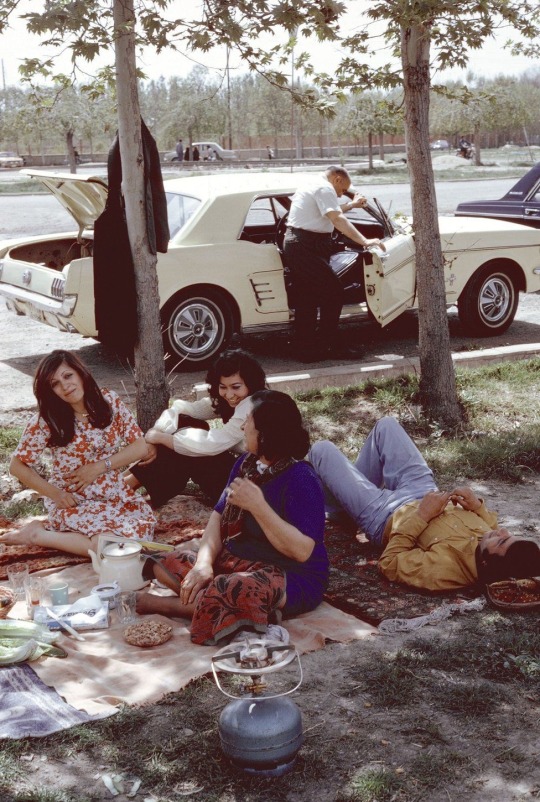
Friday picnic in Tehran in 1976: Families and friends tend to get together on Fridays, which are weekend days in Iran. "Picnics are an important part of Iranian culture and are very popular amongst the middle classes. This has not changed since the revolution. The difference is, nowadays, men and women sitting together are much more self-aware and show more restraint in their interactions," says Prof Afshar.
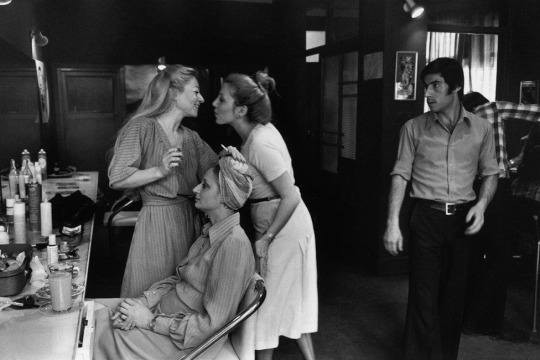
Hair salon in Tehran in 1977: "This is a scene you would no longer expect to see in Iran - but even after the Islamic Revolution, hairdressers continued to exist," says Prof Afshar. "Nowadays you wouldn't see a man inside the hairdressers - and women would know to cover up their hair as soon as they walked out the door. Some people may also operate secret salons in their own homes where men and women can mix."
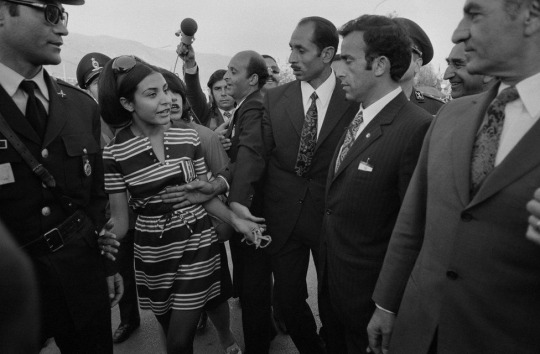
Bodyguards surround the shah in 1971: A young woman approaches Shah Mohammad Reza Pahlavi (far right) at a huge party marking the 2,500th anniversary of the Persian monarchy - the extravagance of the event was widely condemned by his left-wing and clerical opponents. "By this time, the shah was already very much disliked and some believe this image of excess and indulgence may have contributed to events leading up to the revolution eight years later," Prof Afshar explains.
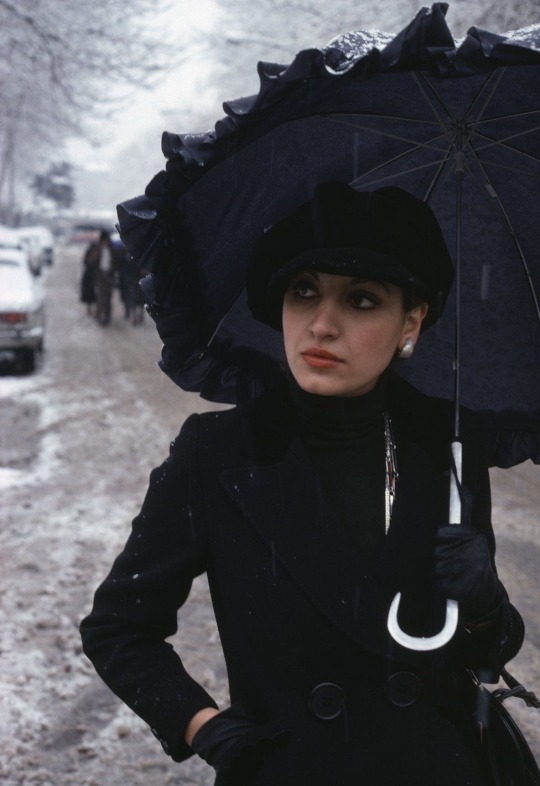
Walking down a snowy street in Tehran in 1976: "You cannot stop women walking in the streets of Iran, but you wouldn't see this today - her earrings and make up so clearly on show," Prof Afshar says. "There is this concept of 'decency' in Iran - so nowadays women walking in the streets are likely to wear a coat down to her knees and a scarf."
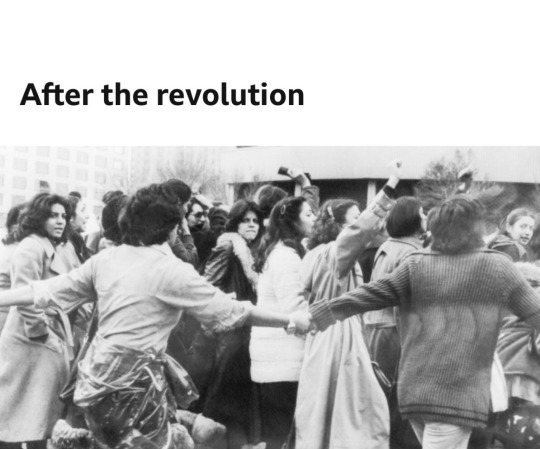
Women rally against the hijab in 1979: Soon after taking power, Iran's new Supreme Leader Ayatollah Ruhollah Khomeini decreed that all women had to wear the veil - regardless of religion or nationality. On 8 March - International Women's Day - thousands of women from all walks of life turned out to protest against the law.
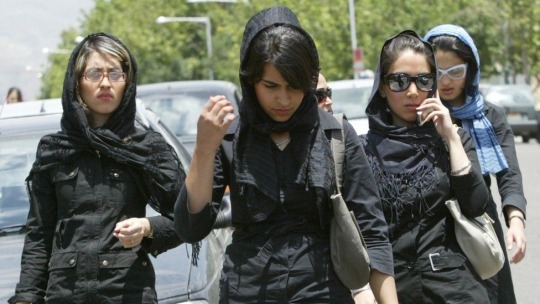
Walking in Tehran in 2005: Not all women in Iran opt to wear the black chador, a cloak that covers the body from head to toe and only leaves the face exposed. Many prefer to wear loosely fitted headscarves and coats. "The real question is how far back do you push your scarf? Women have their own small acts of resistance and often try as far as possible to push their scarves back," says Prof Afshar.

Watching football from a Tehran shopping centre in 2008: Though women were never officially banned from watching men's football matches in Iran, they are often refused entry to stadiums and some of those who have tried have been detained. Before the revolution, women were allowed to attend sporting events.
SEPTEMBER 2022: Protests, after the Morality Police beat, arrested and then murdered Mahsa Amini — for the “crime” of improperly wearing her hijab (source) (source)
#mahsa amini#jini emini#jini amini#iran#hijab#morality police#politics#islamic revolution#tehran#protests#bodily autonomy#womens rights#feminism#womanism#war on women#patriarchy#jhina emini
4K notes
·
View notes
Text
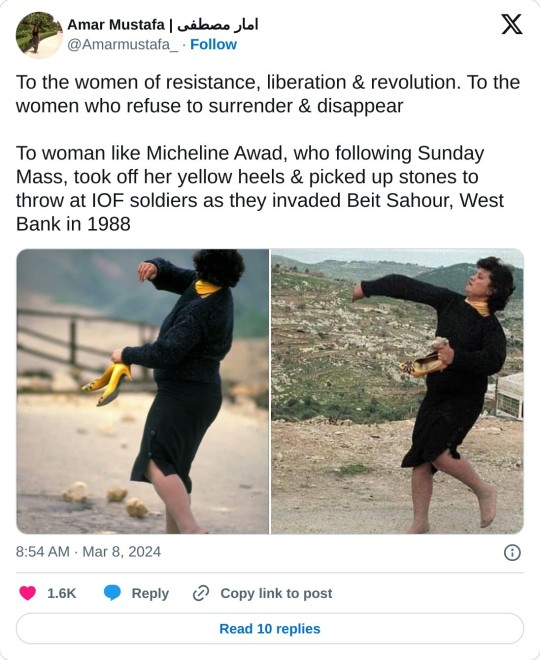


Palestine will be free.
#feminist#feminism#social justice#free palestine#palestine#free gaza#free west bank#settler violence#settler colonialism#resistance#palestinian liberation#revolution#international women's day#womens days#end the occupation#ceasefire now
242 notes
·
View notes
Text
[Hanfu · 漢服]The relationship between women in history is not just love rivals,
“but also thousands of years later, everyone knows that it is me and you.”
Let's get to know about them/她们 in China history.
1.【Han Dynasty】:Princess Jieyou (解忧公主) & Feng Liao (馮嫽)
Princess Jieyou (Chinese: 解忧公主; 121 BC – 49 BC), born Liu Jieyou (Chinese: 刘解忧), was a Chinese princess sent to marry the leader of the Wusun kingdom as part of the Western Han Chinese policy of heqin(和亲).
As the granddaughter of the disgraced Prince Liu Wu (劉戊) who had taken part in the disastrous Rebellion of the Seven States,her status was low enough that she was sent to replace Princess Liu Xijun (劉細君) after her untimely death and marry the Wusun king Cunzhou (岑陬).
Jieyou lived among the Wusun for fifty years and did much work to foster relations between the surrounding kingdoms and the Han. She was particularly reliant upon her attendant, Feng Liao, whom she dispatched as an emissary to Wusun kingdoms and even to the Han Court. She faced opposition from pro-Xiongnu members of the Wusun royalty, particularly Wengguimi’s Xiongnu wife. When word came that the Xiongnu planned to attack Wusun, she convinced her husband to send for aid from the Han Emperor. Emperor Wu of Han sent 150,000 cavalrymen to support the Wusun forces and drive back the Xiongnu.
In 51 BCE at the age of 70, Jieyou asked to be allowed to retire and return to the Han. Emperor Xuan of Han agreed and had her escorted back to Chang'an where she was welcomed with honor. She was given a grand palace with servants usually reserved for princesses of the imperial family. In 49 BCE, Jieyou died peacefully.
Feng Liao (馮嫽)
Feng Liao (馮嫽) was China's first official female diplomat,[citation needed] who represented the Han dynasty to Wusun (烏孫), which was in the Western Regions. It was a practice for the Imperial Court to foster alliances with the northern tribes via marriage, and two Han princesses had married Wusun kings.
Feng Liao was the maidservant of Princess Jieyou (解憂公主), who was married off to a Wusun king. Feng herself later married an influential Wusun general, whose good standing with Prince Wujiutu (烏就屠) of the kingdom later proved beneficial to the Han dynasty.
When Prince Wujiutu seized the throne of Wusun in 64 BC, after his father died, there was fear in the Imperial Court of Han that Wujiutu, whose mother was Xiongnu, would allow Wusun to become Xiongnu's vassal.
Zheng Ji, Governor of the Western Regions, recalled that Feng Liao had married into Wusun and with her familiarity of the Wusun customs, she was a prime candidate to persuade Wujiutu to ally his kingdom with Han. Wujiutu acceded and Emperor Xuan of Han (漢宣帝) sent for Feng. He praised her for her judgement and diplomacy, and appointed her as the official envoy to Wusun.
Wujiutu was conferred the title "Little King of Wusun" while his brother, the son by a Han princess, was named "Great King of Wusun". Wusun was divided between the two kings and tensions in that region were eased.
※Xiongnu: Xiongnu: A nomadic tribe that has occupied northern China for a long time. Later it gradually became a state. It harassed the borders of the Han Dynasty for a long time and robbed supplies.
------
With their efforts, the Wusun Kingdom gradually tended to support the Han Dynasty, and the Xiongnu's defeat in China also began.
------
2.【Tang Dynasty】:Shangguan Wan'er(上官婉儿)&Princess Taiping (太平公主)
Shangguan Wan'er/上官婉儿 (664 – 21 July 710) was a Chinese politician, poet, and imperial consort of the Wu Zhou and Tang dynasties. Described as a "female prime minister,"Shangguan rose from modest origins as a palace servant to become secretary and leading advisor to Empress Wu Zetian of Zhou. Under Empress Wu, Shangguan exercised responsibility for drafting imperial edicts and earned approbation for her writing style. She retained her influence as consort to Wu's son and successor, Emperor Zhongzong of Tang, holding the imperial consort rank of Zhaorong (昭容). Shangguan was also highly esteemed for her talent as a poet.Shangguan was also highly esteemed for her talent as a poet. In 710, after Emperor Zhongzong's death, Shangguan was killed during a palace coup that ended the regency of Empress Dowager Wei.
Princess Taiping (太平公主)lit. "Princess of Great Peace", personal name unknown, possibly Li Lingyue (李令月) (after 662 – 2 August 713) was a royal princess and prominent political figure of the Tang dynasty and her mother Wu Zetian's Zhou dynasty. She was the youngest daughter of Wu Zetian and Emperor Gaozong and was influential during the reigns of her mother and her elder brothers Emperor Zhongzong and Emperor Ruizong (both of whom reigned twice), particularly during Emperor Ruizong's second reign, when for three years until her death, she was the real power behind the throne.
She is the most famous and influential princess of the Tang dynasty and possibly in the whole history of China thanks to her power, ability and ambition. She was involved in political difficulties and developments during the reigns of her mother and brothers. Indeed, after the coup against Empress Dowager Wei, she became the real ruler of Tang. During the reign of Emperor Ruizong, she was not restricted by anything, the emperor issued rulings based on her views and the courtiers and the military flattered her and majority from every civil and military class joined her faction, so her power exceeded that of the emperor.
Eventually, however, a rivalry developed between her and her nephew, Emperor Ruizong's son, Crown Prince Li Longji. Both of them were hostile in power-sharing and they fought for the monopoly over power. After Emperor Ruizong yielded the throne to Li Longji (as Emperor Xuanzong) in 712, the conflict came to the political forefront, and openly, the court became a manifestation of conspiracy rather than the administration of the empire; in 713, Emperor Xuanzong, according to historical records, believing that she was planning to overthrow him, acted first, executing a large number of her powerful allies and forcing her to commit suicide.
------
The relationship between Shangguan Wan'er and Princess Taiping has always been written as "enemies" in official history, but with the phrase "千年万岁,椒花颂声", their friendship that has been buried for thousands of years was revealed.
The"���年万岁,椒花颂声" sentence comes from the epitaph written by Princess Taiping for Shangguan Wan'er. The original text is: "潇湘水断,宛委山倾,珠沉圆折,玉碎连城。甫瞻松槚,静听坟茔,千年万岁,椒花颂声”
Translation: Now that you are far away, the sky and the earth will lose their color. I'm afraid that all I can do in the future is to sit and look at the tea tree in front of your tomb. Maybe I can hear your voice again when I stand within an inch of the tomb. But this is a delusion after all, a quiet tomb, no beautiful face, a empty place of death. I hope that in a thousand or ten thousand years, there will still be people like me who remember you.
------
3.【Late Qing Dynasty】:Lü Bicheng(呂碧城) & Qiu Jin (秋瑾)
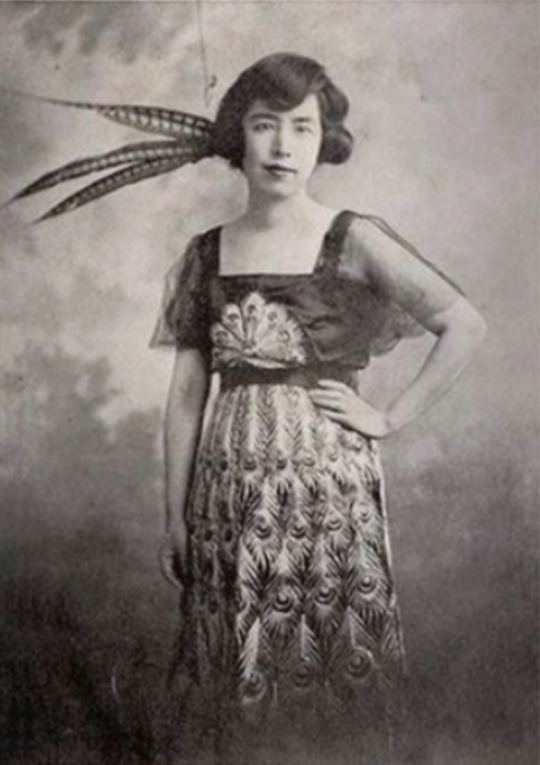
Lü Bicheng(呂碧城)also known as Alice Pichen Lee(1883–1943) was a Chinese writer, activist, newspaper editor, poet and school founder. She has been mentioned as one of the top four women in literature from the early Republic of China.
When she was four, her father retired to Lu'an, Anhui. She lived a life of comfort until the age of 12, when her father died in 1895. Because Lü Fengqi had no male heir, relatives of the Lü lineage contested for his inheritance, and Yan Shiyu and her four daughters were forced to move to Lai'an County to live with her natal family. When she was nine, Lü Bicheng was betrothed to a Wang family, but as her own family fortune declined, the Wang family broke off the marriage contract, giving the young Bicheng the stigma of a "rejected woman". The resulting emotional scar is often considered a major factor in her later decision to never marry.[8] Her widowed mother and the Lü girls were not well treated at the Yan family in rural Anhui. When Lü was 15 or 16, Yan Shiyu sent her to live with her maternal uncle Yan Langxuan (嚴朗軒), who was the salt administrator in Tanggu, the port city outside the northern metropolis of Tianjin. Her sister Huiru also joined her later.
During her stay in Tanggu, Qing China went through the tumultuous period of the failed Hundred Days' Reform of 1898, which brought about increasing awareness of women's education, and the Boxer Rebellion of 1900. In 1904, Mrs. Fang, the wife of her uncle's secretary, invited Lü Bicheng to visit a girls' school in Tianjin, but her uncle prevented her from going and severely reprimanded her. The next day, she ran away from her uncle's home, and took the train to Tianjin with no money or luggage. She wrote a letter to Mrs. Fang, who was staying at the dormitory of the Ta Kung Pao newspaper. Ying Lianzhi, the Catholic Manchu nobleman who founded the newspaper, read the letter and was so impressed by it that he made her an assistant editor. Lü Bicheng wrote a "progressive" ci that she had previously written, set to "A River Full of Red" ("Manjianghong") usually used to express heroic emotions. Ying transcribed the whole song in her diary and published it in L'impartial two days later. At the time, it was sensational for a woman to write for an influential national newspaper such as Ta Kung Pao. She was 21 years old. She used Ta Kung Pao to promote feminism and became a well-known figure.
Lü's ci poetry was published in the newspaper and it was very well received. She was the chief editor of the newspaper from 1904 to 1908. In 1904 she decided to improve education for girls. She had published her thoughts on women's rights and the general editor of the newspaper introduced her to Yan Fu who was an advocate for Western ideas. The Beiyang Women's Normal School was established that same year. At 23 Lü took on the job of principal of the school she had founded two years before. At first this school found it difficult to find girls who qualified for secondary education and students were brought in from Shanghai to make up the numbers.
Lü knew the revolutionary Qiu Jin and they had similar objectives but Lü did not join her in Japan when she was invited as she was unsure whether women should meddle in politics. She was then chosen to be secretary to Yuan Shikai, one of the most powerful people in China. When he set out to declare himself emperor of China she left, like many of his followers, and abandoned him.
--

Qiu Jin (秋瑾)8 November 1875 – 15 July 1907,was a Chinese revolutionary, feminist, and writer.Her sobriquet name is Jianhu Nüxia (Chinese: 鑑湖女俠 lit. 'Woman Knight of Mirror Lake').
Qiu was born into a wealthy family. Her grandfather worked in the Xiamen city government and was responsible for the city's defense. Zhejiang province was famous for female education, and Qiu Jin had support from her family when she was young to pursue her educational interests. Her father, Qiu Shounan, was a government official and her mother came from a distinguished literati-official family. Qiu Jin's wealthy and educated background, along with her early exposure to political ideologies were key factors in her transformation to becoming a female pioneer for the woman's liberation movement and the republican revolution in China.
In the early 1900s, Japan had started to experience western influences earlier than China. As to not fall behind, the Qing government sent many elites to learn from the Japanese. Qiu Jin was one of these elites that got the chance to study overseas. After studying in a women's school in Japan, Qiu returned to China to participate in a variety of revolutionary activities; and through her involvement with these activities, it became clear how Qiu wanted others to perceive her. Qiu called herself 'Female Knight-Errant of Jian Lake' — the role of the knight-errant, established in the Han dynasty, was a prototypically male figure known for swordsmanship, bravery, faithfulness, and self-sacrifice — and 'Vying for Heroism'
Qiu Jin had her feet bound and began writing poetry at an early age. With the support from her family, Qiu Jin also learned how to ride a horse, use a sword, and drink wine—activities that usually only men were permitted to learn at the time.In 1896 Qiu Jin got married. At the time she was only 21, which was considered late for a woman of that time. Qiu Jin's father arranged her marriage to Wang Tingchun, the youngest son of a wealthy merchant in Hunan province. Qiu Jin did not get along well with her husband, as her husband only cared about enjoying himself.While in an unhappy marriage, Qiu came into contact with new ideas. The failure of her marriage affected her decisions later on, including choosing to study in Japan.
While still in Tokyo, Qiu single-handedly edited a journal, Vernacular Journal (Baihua Bao). A number of issues were published using vernacular Chinese as a medium of revolutionary propaganda. In one issue, Qiu wrote A Respectful Proclamation to China's 200 Million Women Comrades, a manifesto within which she lamented the problems caused by bound feet and oppressive marriages. Having suffered from both ordeals herself, Qiu explained her experience in the manifesto and received an overwhelmingly sympathetic response from her readers. Also outlined in the manifesto was Qiu's belief that a better future for women lay under a Western-type government instead of the Qing government that was in power at the time. She joined forces with her cousin Xu Xilin and together they worked to unite many secret revolutionary societies to work together for the overthrow of the Qing dynasty.
Between 1905 and 1907, Qiu Jin was also writing a novel called Stones of the Jingwei Bird in traditional ballad form, a type of literature often composed by women for women audiences. The novel describes the relationship between five wealthy women who decide to flee their families and the arranged marriages awaiting them in order to study and join revolutionary activities in Tokyo. Titles for the later uncompleted chapters suggest that the women will go on to talk about “education, manufacturing, military activities, speechmaking, and direct political action, eventually overthrowing the Qing dynasty and establishing a republic” — all of which were subject matters that Qiu either participated in or advocated for.
Life after returning to China
Qiu Jin was known as an eloquent orator who spoke out for women's rights, such as the freedom to marry, freedom of education, and abolishment of the practice of foot binding. In 1906 she founded China Women's News (Zhongguo nü bao), a radical women's journal with another female poet, Xu Zihua in Shanghai. They published only two issues before it was closed by the authorities. In 1907, she became head of the Datong school in Shaoxing, ostensibly a school for sport teachers, but really intended for the military training of revolutionaries[citation needed]. While teaching in Datong school, she kept secret connection with local underground organization—The Restoration Society. This organization aimed to overthrow the Manchu government and restore Chinese rule.
Death
In 1907, Xu Xilin, Qiu’s friend and the Datong school’s co-founder was executed for attempting to assassinate his Manchu superior. In the same year, the authorities arrested Qiu at the school for girls where she was the principal. She was tortured but refused to admit her involvement in the plot. Instead the authorities used her own writings as incrimination against her and, a few days later, she was publicly beheaded in her home village, Shanyin, at the age of 31. Her last written words, her death poem, uses the literal meaning of her name, Autumn Gem, to lament of the failed revolution that she would never see take place:
秋風秋雨愁煞人
(Autumn wind, autumn rain — they make one die of sorrow)
After Qiu Jin was killed, no one dared to collect her body. Lu Bicheng endured her grief and took great risks to bury her friend. The guarding Qing army learned that the woman who came to collect the corpse was Lu Bicheng, who was famous in China, and they had no choice but to do anything.
Qiu Jin's death caused Lu Bicheng to lose a rare confidant in life. She wrote many poems in memory of Qiu Jin, recalling this like-minded friend.
Later, Lü Bicheng wrote "The Biography of the Revolutionary Heroine Qiu Jin" in English, which was published in newspapers in New York, Chicago and other places in the United States. It caused a great response and not only made many people in the world know about Qiu Jin's legendary story, but also published it in newspapers in New York and Chicago. It also makes people understand the darkness and corrupt social status quo of the Qing Dynasty. Lu Bicheng used a pen of her own to record her friendship with Qiu Jin, and also fulfilled her promise to Qiu Jin to respond with the "battle of words"
————————
📸Video & 🧚🏻 Model:@荷里寒 & @阿时Ashi_
🔗Weibo:https://weibo.com/3618951560/NEZZnpQRq
————————
#chinese hanfu#china history#woman power#woman in history#hanfu#hanfu accessories#hanfu_challenge#chinese traditional clothing#china#chinese#han dynasty#tang dynasty#late qing dynasty#feminism#revolution#漢服#汉服#中華風#girl power#hanfu girl
357 notes
·
View notes
Text
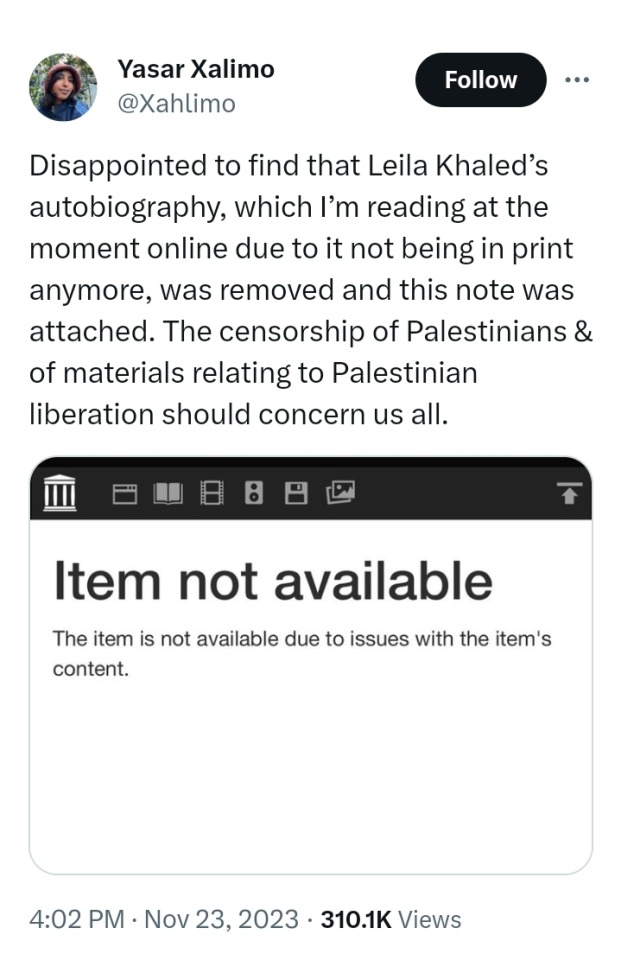
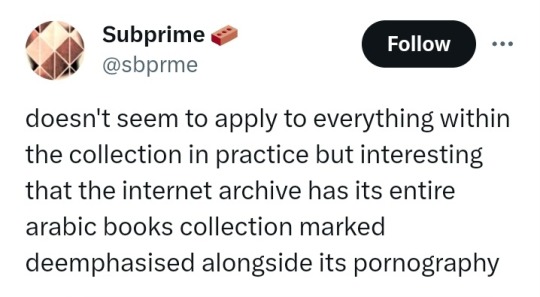
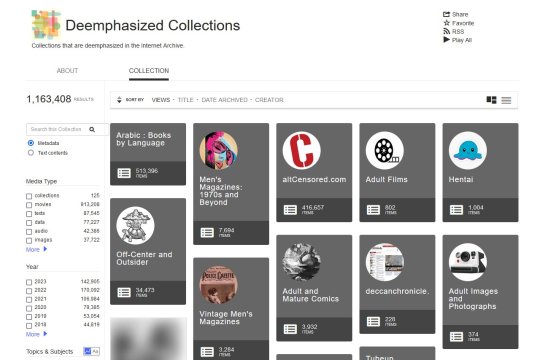
This is insane. This is actually insane. If anyone had told me this could be a thing in September I would have called them a tinhat.
I've been tracking down I/P conflict recs lists and downloading as many books and articles in them as I can find. Tracked down both Leila Khaled's autobiography and her biography by Sarah Irving on LibGen as well. All of them have been uploaded to my gdrive. You can find it in the Poetry and Literature subfolder in the Palestine section. Go nuts.
Btw there's a site called "Accountability Archive" (@archivegenocide on twitter) promoting itself in the wake of all this; it's pretty sus and seems to be one of those SJ "activist" groups that exploit Global South trauma and exclude their voices. Do background checks on all your allies, folks, and look at whether they're boosting impacted communities or talking over them.
#et tu internet archive#censorship#media suppression#banned books#right to information#book recs#revolution#feminism#resistance#colonization#social justice#free palestine#from river to sea palestine will be free#knee of huss
295 notes
·
View notes
Text

#leningrad#lenin#leftism#anti capitalism#communism#socialism#anarchy#marxist leninist#vladimir lenin#stalin#karl marx#soviet union#marxism leninism#october revolution#bolsheviks#radical feminism#anti feminism#feminism#tweet#womens rights#fuck the patriarchy#feminist theory#female erasure#intersectional feminism
118 notes
·
View notes
Text
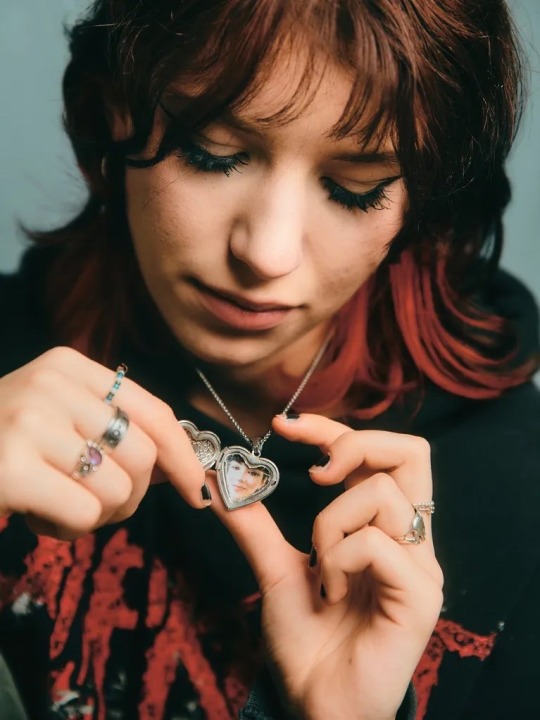


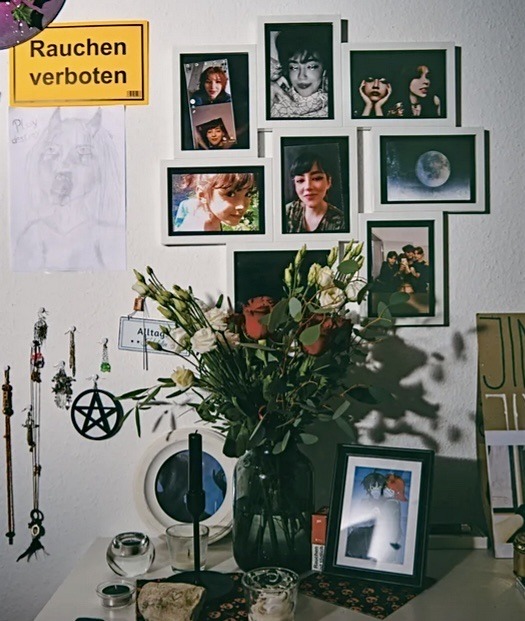
Interview with Nele, Nika Shakarami’s girlfriend by Zeit Magazine
‘‘Nika loved the moon, and it became an important symbol in their relationship, says Nele. When they missed each other, they would say: "We don’t live in the same country, but beneath the same sky." Sometimes, Nika would tell Nele over the phone that she was looking at the moon, saying: You should go outside too, Nele, so we can look at it together. They even called each other "my moonie." Or Niki and Neli. Or Haku and Chihiro, like the main characters in the anime film "Spirited Away," which both of them loved. The story involves a courageous boy helping a shy girl escape a world full of monsters. "That was us," Nele says today‘‘
Nika Shakarami was a 16 year old brave Iranian girl who was kidnapped by the police during the ongoing protests in Iran, brutally tortured, raped and murdered in cold blood. Her burial was on her birthday. Say her name, Nika Shakarami

#Nika Shakarami#Zeit magazin#Iran#free Iran#Iran revolution#Iran protests#Mahsa amini#jina amini#opiran#Iranian women#feminism#Woman Life Freedom#women's rights#human rights#zan zendegi azadi#iranian lives matter#lgbtq#alternative#alt
1K notes
·
View notes
Text

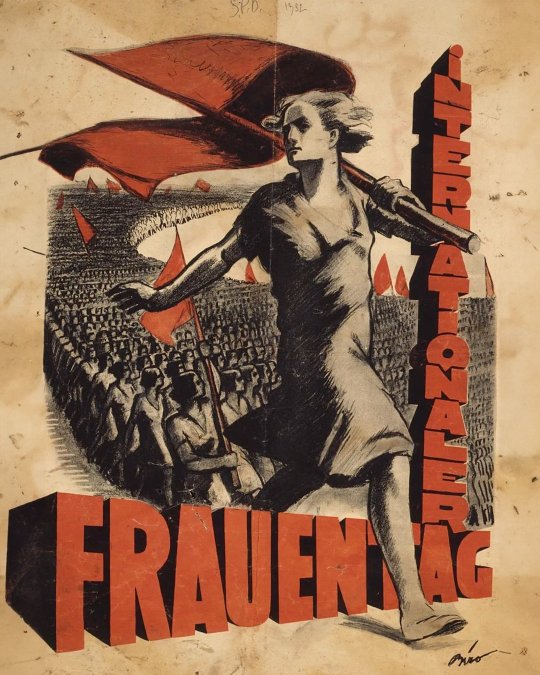

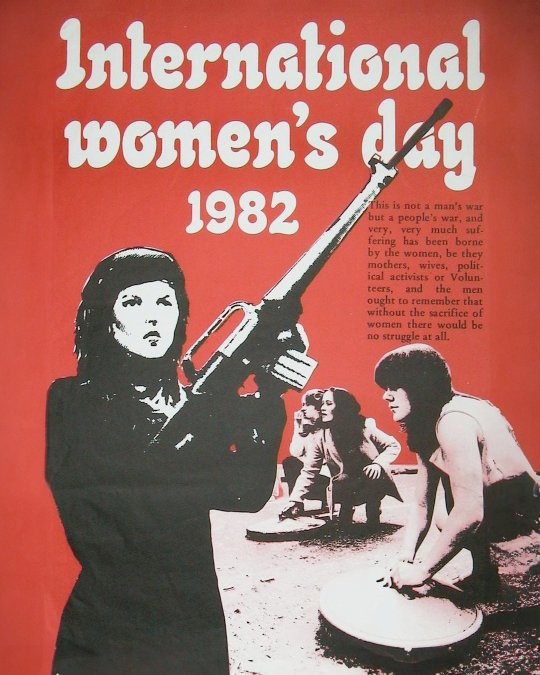
#international women's day#international working women's day#posters#propaganda#feminism#women#women's rights#communism#pflp#palestine#eritrea#ireland#germany#revolution#eplf#ira#guerrilla#march 8th#march 8#8 de marzo
819 notes
·
View notes
Text
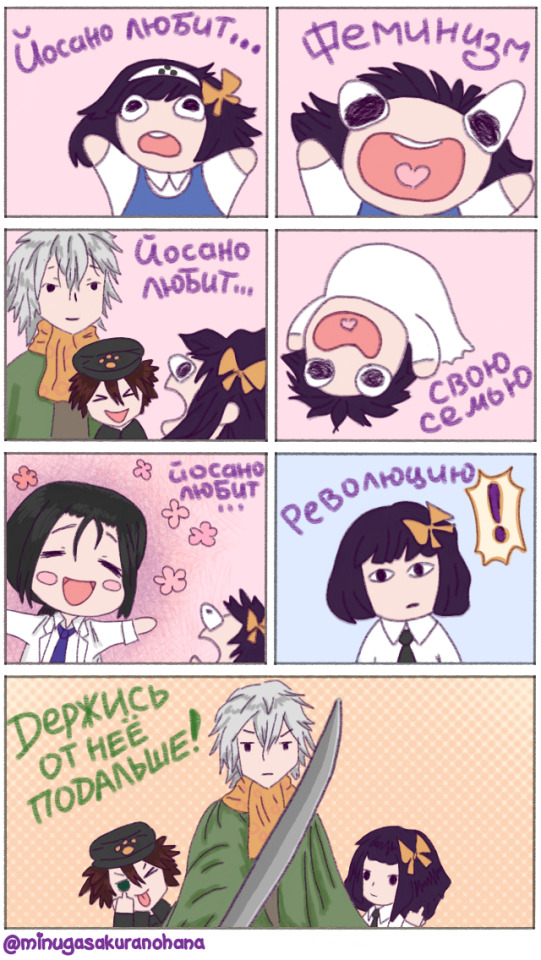

Я прошла эволюцию от "что такое мем?" до "хэй, народ, смотрите, я тут ещё одну картиночку набросала"
Тот факт, что русская и английская версия набирают разное число лайков, чутка раздражает. Поэтому — вот.
Do you love feminism too? 'Cause l do.
I always hope, l didn't do some mistakes when translated it in English. But when I do it I'm still okay because I remember Dostoevsky who did some mistakes in wan when he used foreign language. ☺🐭
I'm a little bit upset when Russian version of post get less likes than English, so when it's not an article it will be bilingual. 😈
#bungou stray dogs#art#bsd fanart#that meme about revolution#bsd yosano#bsd fukuzawa#bsd mori#bsd ranpo#feminism#турумбочка#bsd memes
95 notes
·
View notes
Text

Women,life,freedom
#mahsa amini#iran#women movement of iran#religious oppression#feminist#feminism#this is a revolution
2K notes
·
View notes
Text
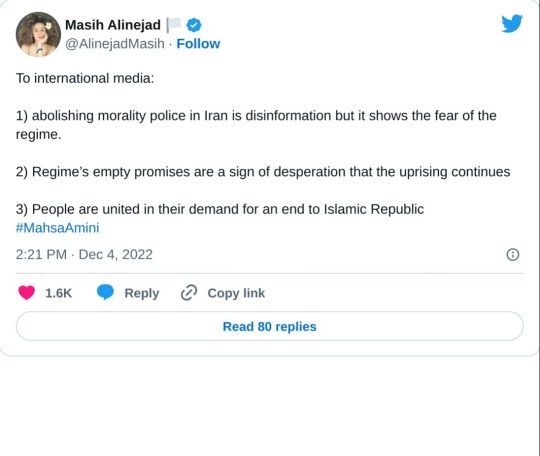
The Islamic Republic: we canceled the morality police!
Iranians: so?! Does that change the fact that you have committed genocide in Kurdish cities and Zahedan? Does that restore people's eyesight that you took from them with your rubble bullets? Does that bring back to life almost 500 murdered protesters in the last 3 months, among them at least 60 children? Does that bring back to life 1500 people you massacred in 2019 and those you executed afterwards? Or the 30000 people you executed in the first decade of your rule? And everyone you've arrested, raped, tortured and executed in between simply because they didn't agree with you? Does that mean current executions are stopped? Does that mean tens of thousands of arrested protesters are free? Does that mean fired or suspended students are back to classes and can get an education? Does that mean the poverty threshold is no longer so absolutely high that even the once above average families are considered absolutely poor? Does that erase 40 years of apartheid? State racism? State misogyny? Inequality? Have you stopped bothering religious minorities and are giving them their basic human rights back? Does that mean there's no more child marriages? Legal rape? Does that mean you no longer kill and torture LGBTQ people? Does that make up for the environmental disaster you've caused in Iran? Water shortage? Bewildering fuel shortage? All the lakes and water bodies that are dry now and the jungles that has been destroyed? Currently northern jungles are on fire, are the trees restored? Does that mean you no longer execute environmental activists because they object your unscientific environment policies? Does that mean all censorships and restrictions are lifted? Does that end your meddling in other countries affairs? Does it mean you're not a bunch of thieves and murderers who know nothing about running a country? Does that make up for all the lives you've destroyed? And most importantly does that bring Mahsa Amini back to life???
It's too late for that. Iranians have been loud and clear. We won't sit down until this regime is completely and irreversibly changed. The whole government system, the constitution, and the people in powers. And those who committed crimes have to be put on trial.
(The morality police have been around under different names for almost the entirety of this regime. This is just a temporary stop. Even if the morality police is disbanded for good, compulsory hijab is still a law and it's illegal to not wear appropriate clothing. Any police force is able to arrest non hijabis since they're doing something illegal, it's not an exclusive morality police duty. Plus the morality police was just enforcing hijab in the streets. What about every governmental and private offices and institutions? They all have to enforce mandatory hijab on both their employees and costumers So this news means literally nothing. West media should research these things better before publishing misleading informations)
I strongly recommend everyone to go to #MahsaAmini in twitter and read iranians tweets. Like, I strongly recommend it. I even put the link to make it easier for you. Just click on it.
#iran revolution#iran protests#help iran#mahsa amini#iran#lgbtq+#human rights#politics#feminism#children's rights#intersectional feminism#intersectional social justice#morality police#police brutality#middle east matters too#middle east politics#theocracy#environment#environmetalists#water shortage#tw murder#tw assualt#propaganda#revolution#protests#stop executions#execution#don't trust islamic republic of iran
2K notes
·
View notes